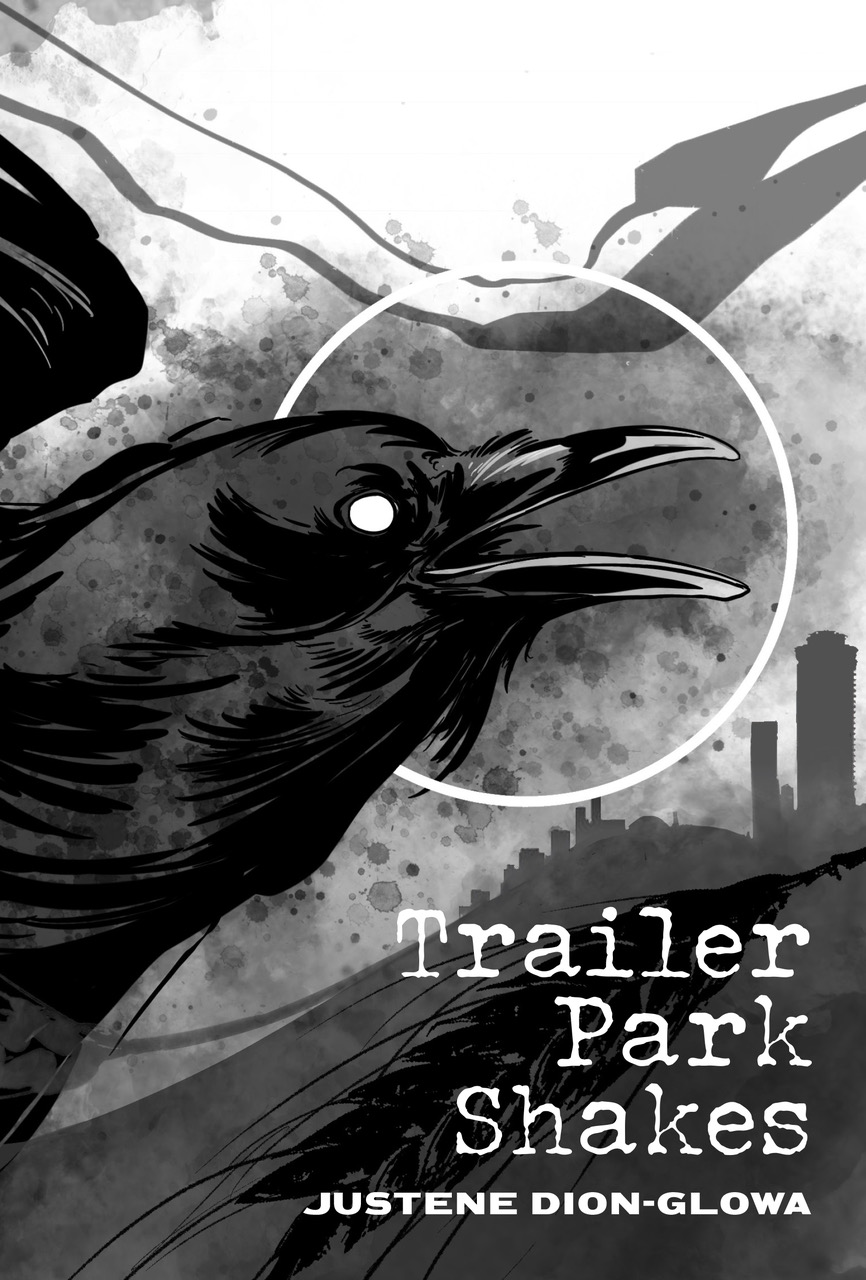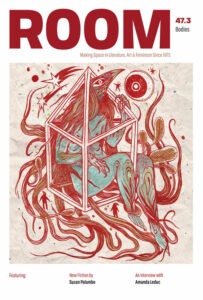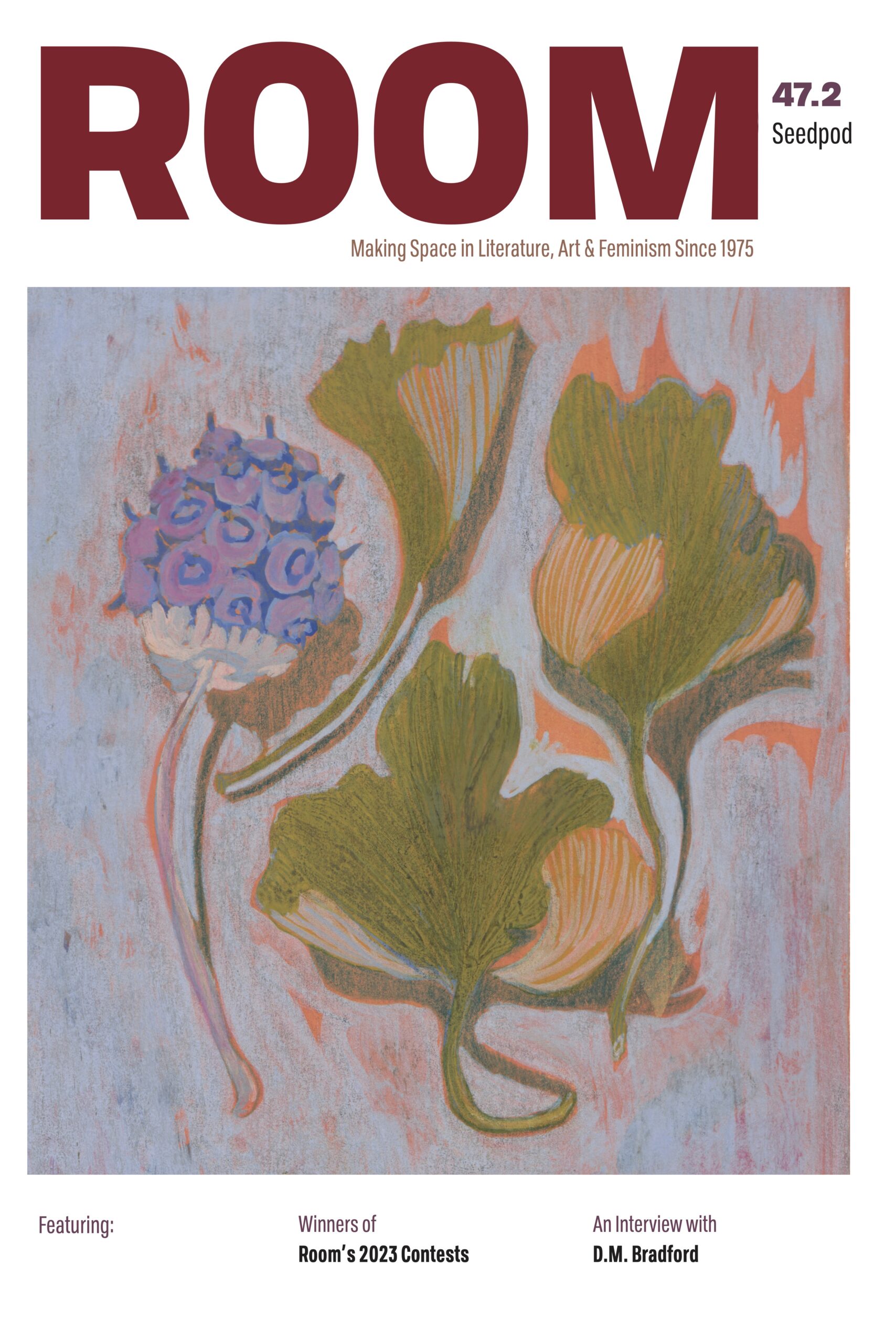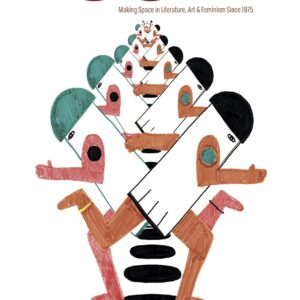Trailer Park Shakes
By Justene Dion-Glowa
Brick Books
96 pages, $24
Justene Dion-Glowa’s first full-length poetry book, Trailer Park Shakes, considers how one finds strength in grieving a lifetime of injustice, poverty, trauma, family violence, and the loss of a brother. In an urgent catharsis where the natural world offers solace amidst suffering, Dion-Glowa’s Secwepemcú’lecw-based poetry wears down the jagged edges of painful memories and events, instilling unshakable resilience to carry on.
Written in two parts, Trailer Park Shakes wrestles with the author’s path to healing, as well as parenthood, marriage, and their Métis and queer identity. The poems wander through dusty towns filled with weed smoke, to prisons, food banks, funerals, and churches, all settings where Dion-Glowa reckons with difficult memories. Some poems are biting and literal as they deal with these memories, others haunt the pages as ethereal ghosts not wanting to be seen, or as encounters with spiders, dead crows, deer, thistles, moonlit altars, monsters, and howling coyotes.
The collection is, as a whole, an emotional outpouring. Many poems express the ache resulting from violence and institutional trauma. However, this is countered by an equal measure of lightness. In “n8v aunties” and “Claim Laid,” Indigenous ceremony and the beauty of nature uplifts the collection with spiritual healing, as do the animals that scurry across the pages: “I hope sagebrush bursts through your cedarwood coffin / and Eagle carries you home to Creator.”
What stands out most in Trailer Park Shakes is Dion-Glowa’s unapologetic honesty about grief. They do not shy away from reliving painful memories in order to process the past. In “Finale,” they write:
A friend vacuums up the pills off the floor
Unceasing tears flow
from faces you barely rememberA stranger who claims she’s your mom asks
if you’re okayYou choke on vomit while you hold a dead man’s hand
For those who have suffered injustice, childhood trauma, or violence, it can often be difficult to re-examine the past and understand the complexity of emotions involved: The hurt of painful events runs deep. It seems that for Dion-Glowa, there is healing in honesty, in the act of proclamation. To finally call the truth out, to finger-point, to say out loud how it feels is to process grief. Here anger, sadness, guilt, and resentment, are not emotions to bottle up but emotions to express as a way to heal. This fearlessness shines through the collection, inviting readers to revisit their own lives in a sort of cleansing ritual.
So, in writing Trailer Park Shakes, Dion-Glowa leads by example, challenging readers to confront injustice and adversity with presence, in a world where “it really is just one fucked up situation after another in a / never-ending loop. / But that doesn’t mean the world is out to get you / It just means that’s all the world has to offer at this time.”
—Kendra Heinz















